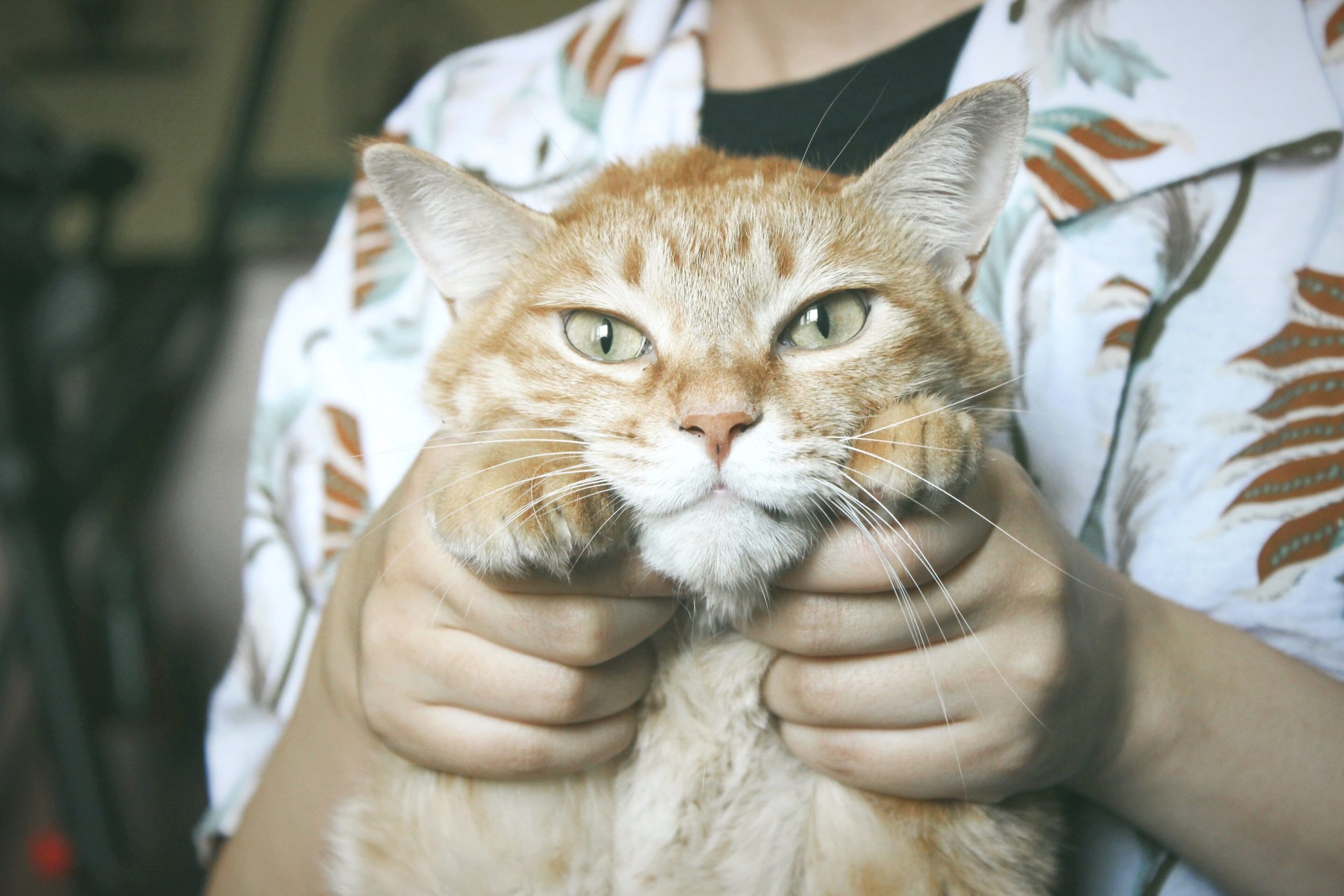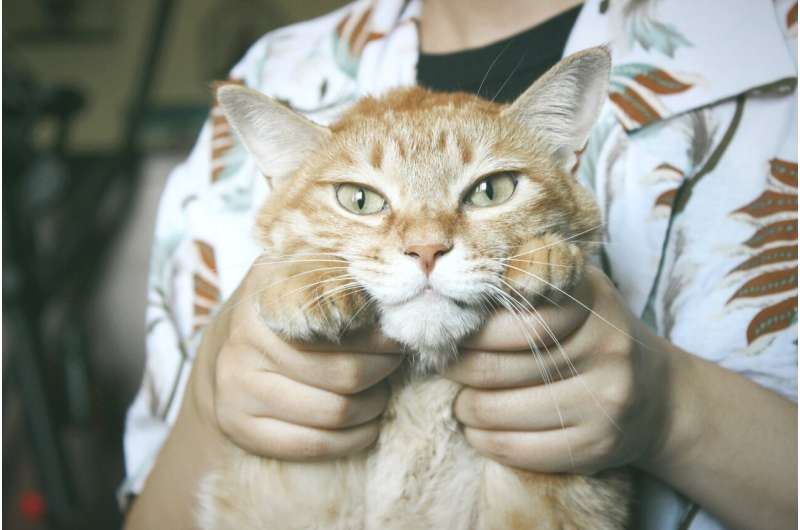

Self-proclaimed “cat people” might not always know what’s best for their pets when it comes to showing them affection, new research suggests—and it could affect their cat’s behavior during interactions.
Cat welfare scientists at Nottingham Trent University and the University of Nottingham looked at how people’s personalities, demographics and previous experience with cats affected how they approached and interacted with them.
The study was a collaboration with Battersea Dogs and Cats Home, who supported and funded the research at their London cattery. The team was looking to see the extent to which participants engaged with cats in the ways that they are known to typically prefer, in terms of handling, petting and general interaction.
Previous research by members of the team suggested that during interactions, letting cats choose when to be petted, generally trying to touch them less, paying close attention to their behavioral reactions and body language and focusing touch primarily to the base of the cat’s ears, cheeks and under their chin are the best ways to increase their affection and reduce aggression.
In the new study, which involved NTU’s School of Animal, Rural and Environmental Sciences, the researchers required 120 participants to spend five minutes in Battersea’s cattery environment interacting with three cats they did not know.
Participants were asked to let the cat come to them and not to follow it, but otherwise were encouraged to interact with the cats as they normally would at home for example.
Surprisingly, the researchers found that participants who subjectively rated themselves as more “knowledgeable and experienced” with regards to cats were more likely to touch areas of the cat’s body they typically find uncomfortable, such as the base of the tail and the tummy.
Additionally, participants who reported having lived with greater numbers of cats and with cats for more years were less likely to give cats sufficient choice and control during interactions, touched cats more and in typically less preferred areas of their body such as their tail, legs and along their backs.
Participants also completed a widely-used questionnaire to assess personality and the extent to which owners fell within one of the five broad personality traits: agreeableness, conscientiousness, extroversion, neuroticism and openness.
Older people and those scoring higher for the personality trait “Neuroticism” tended to try to hold and restrain cats more, while extroverts were more likely to initiate contact with cats more and touch the areas of the cat’s body that are generally less preferred.
In contrast, participants scoring higher in “Agreeableness” were less likely to touch the more sensitive areas of the cat’s body. People that reported having some formal work experience involving cats or other animals were also found to be more “cat friendly” in their approaches to interactions, letting cats take control and being more sensitive to their needs.
The researchers highlight that people’s previous experiences, personalities and perceptions of their own skills can potentially have an important impact on the behavior and well-being of cats and other domestic pets.
Lead researcher Dr. Lauren Finka said: “Our findings suggest that certain characteristics we might assume would make someone good at interacting with cats—how knowledgeable they say they are, their cat ownership experiences and being older—should not always be considered as reliable indicators of a person’s suitability to adopt certain cats, particularly those with specific handling or behavioral needs.
“The good news is, however, that we can use this information in a really positive way to develop targeted educational interventions to ensure that everyone is aware of the best ways to interact with cats to maximize their enjoyment from interactions with us. For example, Battersea recently developed an animation which demonstrates optimal ways we can behave around cats.
“Of course, every cat is an individual and many will have specific preferences for how they prefer to be interacted with. However, there are also some good general principles to follow in order to ensure every cat is as comfortable as possible and that their specific needs are being met.
“Importantly, within shelters, we should also avoid discriminating against potential adopters with no previous cat ownership experience, because with the right support, they may make fantastic cat guardians.”
The study, which also involved SRUC and the University of Edinburgh, is published in the journal Scientific Reports.
Study: Letting cats decide when to be petted avoids hostility and increases their affection
Lauren R. Finka et al, Investigation of humans individual differences as predictors of their animal interaction styles, focused on the domestic cat, Scientific Reports (2022). DOI: 10.1038/s41598-022-15194-7
Nottingham Trent University
Citation:
The most experienced cat owners are giving their pets unwelcome affection, study suggests (2022, August 9)
retrieved 9 August 2022
from https://phys.org/news/2022-08-experienced-cat-owners-pets-unwelcome.html
This document is subject to copyright. Apart from any fair dealing for the purpose of private study or research, no
part may be reproduced without the written permission. The content is provided for information purposes only.